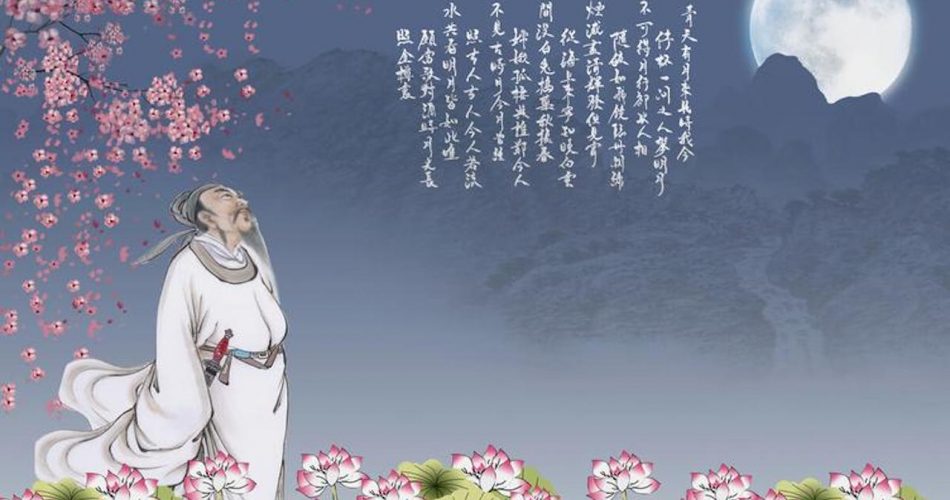In ancient Chinese, numerous outstanding literary masters emerged, who, with their own talents and wisdom, accomplished breathtaking works of poetry that have been passed down from generation to generation.
The fragrance of the link used by these poets carries the essence and profound thoughts of ancient Chinese culture.
From the magnificent rhetoric of Tang and Song poets, to the graceful emotions of Song and Yuan poets, and to the fresh and elegant poetry of the Ming and Qing dynasties, each poet has added a brilliant color to the history of Chinese literature.
This article will introduce the top 10 well-known Chinese ancient poets to all of you.
Contents
- 1. Qu Yuan
- 2. Li Bai
- 3. Du Fu
- 4. Su Shi
- 5. Tao Yuanming
- 6. Wang Wei
- 7. Li Shangyin
- 8. Li Yu
- 9. Bai Juyi
- 10. Kou Zhun
1. Qu Yuan
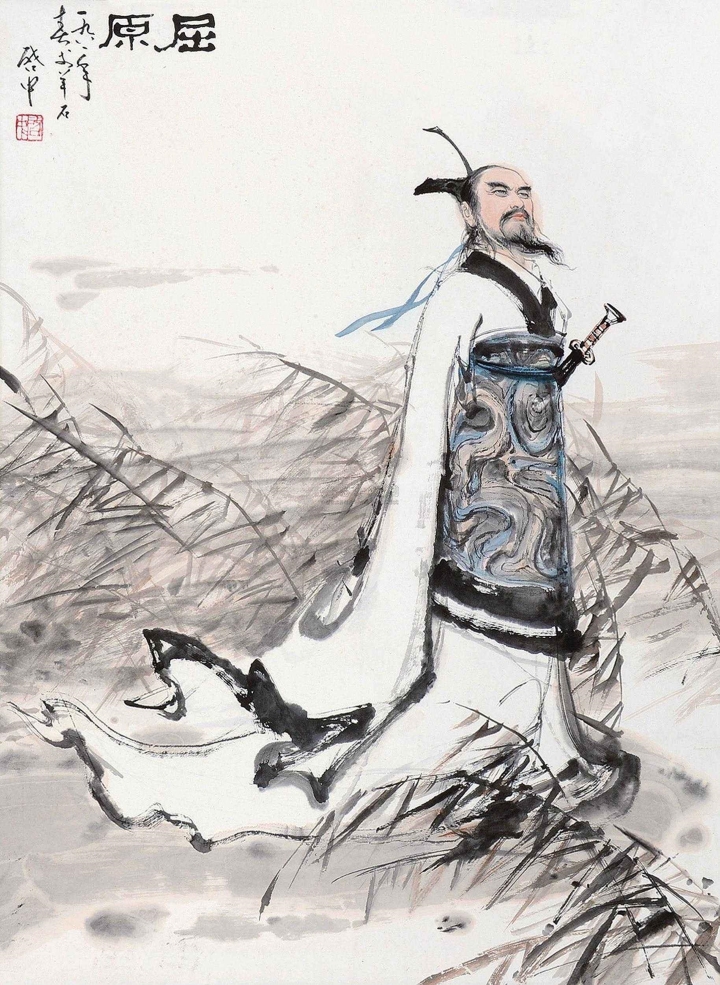
Qu Yuan, surnamed Mi (the ancestral surname of the nobles of the Chu state), has the name of Ping, courtesy name of Yuan and Lingjun, and is also known as Qu Ping, Qu Zi, and Qu Zhengzi.
He was a poet and politician of the State of Chu during the Warring States period, and the founder of Chinese romantic literature. He was also the founder and representative writer of “The Songs of Chu”.
His poetry was strongly romantic, and he incorporated his pursuit of ideals into bold imagination.
Qu Yuan has created an endless effect in his writing with words and meanings, whether it is myth and legend, the sun and moon, the wind and cloud, or the beauty of vanilla.
| Age | 62 (approximately 340 BC to 278 BC) |
| Era | Late Warring States Period |
| Birthplace | Danyang City, Chu State (now Yichang City, Hubei Province) |
| Main works | “Li Sao” (Encountering Sorrow), “Nine Songs”, “Nine Chapters”, “Tian Wen” (Asking Heaven), etc. |
A Classic Work:
Excerpt from “Li Sao”: (Chinese-English Parallel Texts)
长太息以掩涕兮,哀民生之多艰。 余虽好脩姱以鞿羁兮,謇朝谇而夕替。 既替余以蕙纕兮,又申之以揽茝。 亦余心之所善兮,虽九死其犹未悔。 怨灵脩之浩荡兮,终不察夫民心。 众女嫉余之蛾眉兮,谣诼谓余以善淫。 固时俗之工巧兮,偭规矩而改错。 背绳墨以追曲兮,竞周容以为度。 忳郁邑余侘傺兮,吾独穷困乎此时也。 宁溘死以流亡兮,余不忍为此态也。 鸷鸟之不群兮,自前世而固然。 何方圜之能周兮,夫孰异道而相安? 屈心而抑志兮,忍尤而攘诟。 伏清白以死直兮,固前圣之所厚。
Long did I sigh and wipe away my tears, to see my people bowed by griefs and fears; Though I my gifts enhanced and curbed my pride; At morn they’d mock me, would at eve deride; First cause that I angelica should wear, then cause me for my melilotus fair; But since my heart did love such purity, I’d not regret a thousand deaths to die; I marvel at the folly of the king, so heedless of his people's suffering; They envied me my mothlike eyebrows fine, and so my name his damsels did malign; Truly to craft alone their praise they paid, the square in measuring they disobeyed; The use of common rules they held debased, with confidence their crooked lines they traced; In sadness plunged and sunk in deepest gloom, alone I drove on to my dreary doom; In exile rather would I meet my end, than to the baseness of their ways descend; Remote the eagle spurns the common range, nor deigns since time began its way to change; A circle fits not with a square design; their different ways could not be merged with mine. Yet still my heart I checked and curbed my pride, their blame endured and their reproach beside; To die for righteousness alone I sought, for this was what the ancient sages taught.
Li Sao is the longest lyrical poem in ancient China. The ideological content it expresses is extremely rich, which can mainly be summarized in two aspects.
On the one hand, it is to describe the contradiction between the poet and the rulers of the dynasty, namely the opposition between ideals and reality.
On the other hand, it is to describe the poet’s spiritual pain and entanglement, as well as the contradiction between progress and retreat.
2. Li Bai
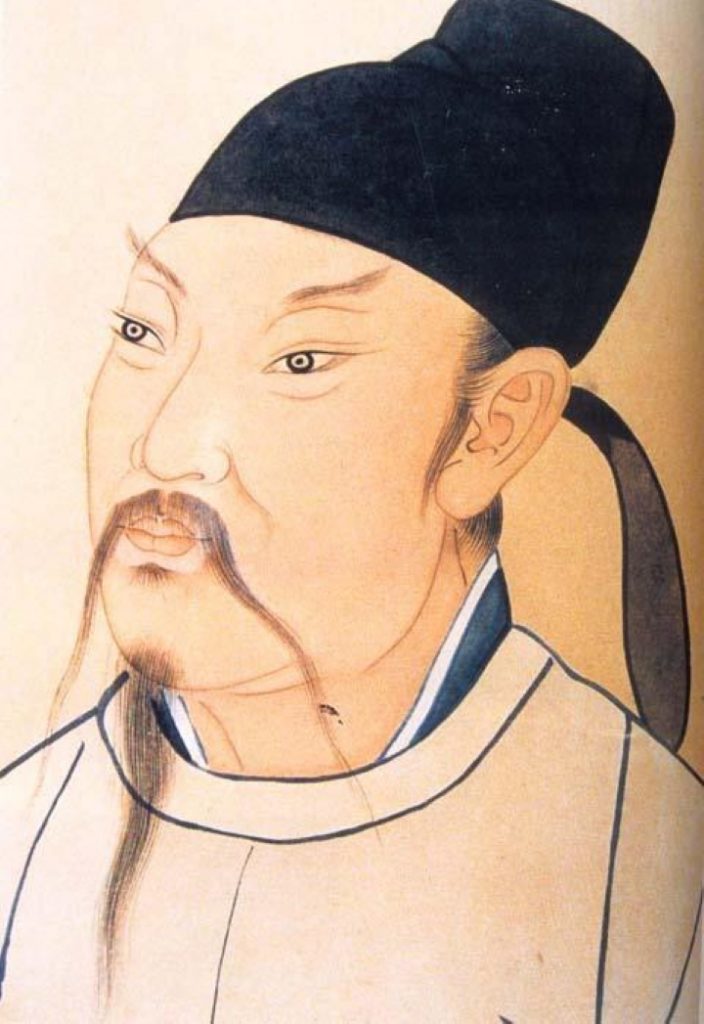
Li Bai, also known as Tai Bai and also known as Qinglian Jushi, was a great romantic poet of the Tang Dynasty and was hailed as the “poetic immortal” in later generations.
He is outgoing and generous, enjoys making friends and drinking alcohol and writing poetry, and is listed as the “Eight Immortals in Wine”. Li Bai’s “Ci Fu” enjoys an extremely high status in terms of its pioneering significance and artistic achievements.
Note: “Ci Fu” is a literary form, sentimental or descriptive composition, often rhymed.
Li Bai’s poetry is bold and unrestrained, full of romanticism color. He openly expresses his emotions in his poetry, such as his joys, sorrows, and joys.
He also uses imagination to transcend time and space, blending reality with dreams and fairyland, or interweaving nature with human society to reproduce objective reality.
| Age | 61 (February 28, 701 to December 762) |
| Era | Tang Dynasty |
| Birthplace | Changlong County, Mianzhou, Sichuan Province (now Jiangyou City, Sichuan Province) (it is also said that Li Bai have been born in Shaye City in the Western Regions of Central Asia) |
| Main works | “Silent Night Thoughts”, “Looking at Tianmen Mountain”, “Departing to the White Emperor City in the Morning”, “Emei Mountain Moon Song”, and “Climbing the Yueyang Tower with the Twelve Summers” |
A Classic work: A Tranquil Night (Chinese-English Parallel Texts)
床前明月光, 疑是地上霜。 举头望明月, 低头思故乡。
Before my bed a pool of light. Can it be hoarfrost on the ground? Looking up, I find the moon bright; Bowing, in homesickness I’m drowned.
A Tranquil Night was created in the 14th year of the Kaiyuan Period of Emperor Xuanzong of Tang Dynasty.
That year, Li Bai went to Yangzhou and stayed at the then Yangzhou hostel. On the night around the fifteenth day of the ninth lunar month, when the moon was bright and the stars were sparse, Li Bai looked up and saw a bright moon in the sky.
The feeling of homesickness arose naturally, and Li Bai wrote this poem that has been passed down for thousands of years and is well-known both domestically and internationally – “A Tranquil Night”.
3. Du Fu
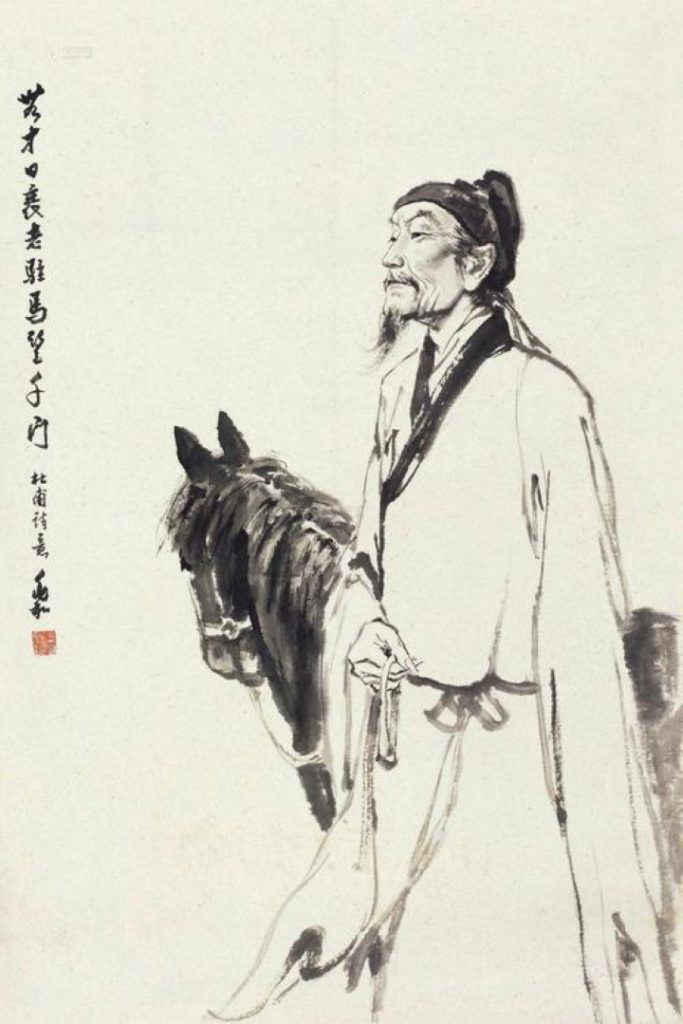
Du Fu, also known as Zimei and Shaoling Yelao, was later referred to as Du Shiyi and Du Gongbu, also known as Du Shaoling and Du Caotang.
He was a great realistic poet of the Tang Dynasty, collectively known as “Li Du” with Li Bai, and was revered as the “Saint of Poetry” by later generations. His poetry has had a profound influence in classical Chinese poetry, and his poetry is known as the “history of poetry”.
Du Fu’s poetry is characterized by a melancholic and realistic artistic style. The content of his poetry often involves social unrest, political darkness, and the suffering of the people.
| Age | 58 (February 12, 712 to 770) |
| Era | Tang Dynasty |
| Birthplace | Gongxian County, Henan Province (now Gongyi City, Henan Province) |
| Main works | “A View of Taishan”, “On the Height”, “View on Spring”, “My Thatched Hut Wrecked by the Autumn Wind”, “Three Officials”, and “Three Partings”. |
A Classic work:
A View of Taishan (Chinese-English Parallel Texts)
岱宗夫如何? 齐鲁青未了。 造化钟神秀, 阴阳割昏晓。 荡胸生曾云, 决眦入归鸟。 会当凌绝顶, 一览众山小。
O peak of peaks, how high it stands! One boundless green o’erspreads two States. A marvel done by Nature’s hands, O’er light and shade it dominates. Clouds rise therefrom and lave my breast; My eyes are strained to see birds fleet. Try to ascend the mountain’s crest: It dwarfs all peaks under our feet.
This poem is dominated by the word “wang” in the poem title, with every sentence describing Taishan mountain.
However, there is not a single word “wang” (see/observe) throughout the poem, but it can give people a sense of immersive experience, which shows the poet’s exquisite layout and artistic conception.
4. Su Shi
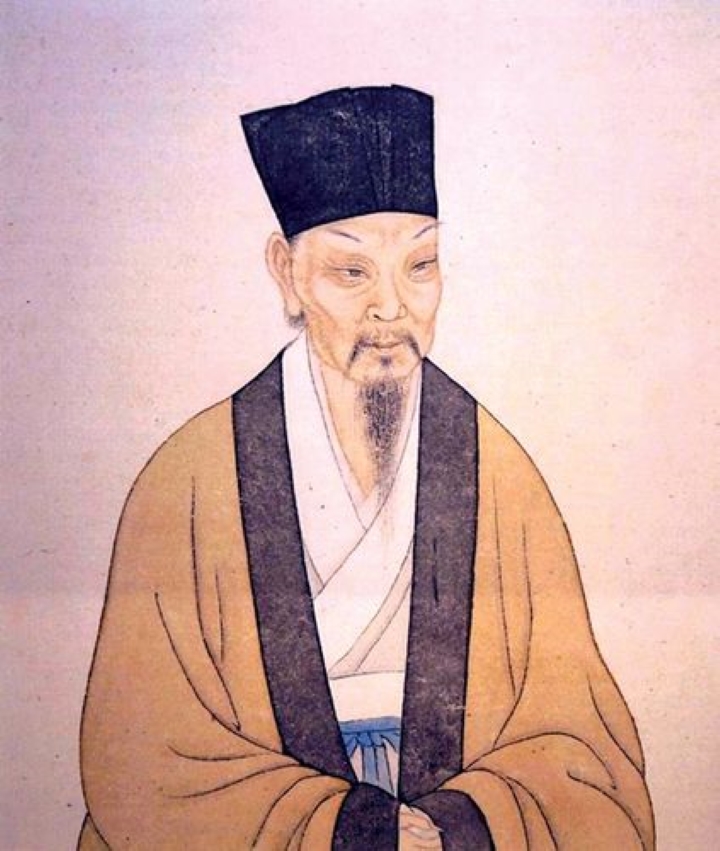
Su Shi, also known as Zizhan and Hezhong, is known as the Iron Crown Taoist and Dongpo Jushi, and is known as Su Dongpo, Su Xian, and Po Xian.
He is a writer, calligrapher, painter, and historical water control celebrity of the Northern Song Dynasty. Su Shi, his father Su Xun, and his younger brother Su Zhe, are collectively referred to as the “Three Sus”.
Su Shi was naturally open-minded and straightforward, earning him a deep Taoist demeanor. He is good at making friends, eating delicious food, tasting tea, and also enjoys traveling in the mountains and forests.
Su Shi’s poetry delivers a sense of grandeur and open-mindedness, but some of his gentle and restrained lyrics are also written with lingering emotions, allowing people to deeply appreciate his delicate inner feelings.
| Age | 64 (1037-1101) |
| Era | Northern Song Dynasty |
| Birthplace | Meizhou, Chengdu Fu Road (now Meishan City, Sichuan Province) |
| Main works | “Seven sets of Dongpo”, “The Biography of Su Dongpo”, and “Yuefu in Dongdu” |
A classic work:
Riverside Town Hunting at Mizhou (Chinese-English Parallel Texts)
Chinese Version:
老夫聊发少年狂,左牵黄,右擎苍,锦帽貂裘,千骑卷平冈。为报倾城随太守,亲射虎,看孙郎。 酒酣胸胆尚开张,鬓微霜,又何妨!持节云中,何日遣冯唐?会挽雕弓如满月,西北望,射天狼。
English Version:
Rejuvenated, I my fiery zeal display, on left hand leash, a yellow hound, on right hand wrist, a falcon grey. A thousand silk-capped, sable-coated horsemen sweep across the rising ground and hillocks steep. Townspeople pour out of the city gate to watch the tiger-hunting magistrate. Heart gladdened with strong wine, who cares about a few new-frosted hairs. When will the court imperial send an envoy to recall the exile? Then I'll bend my bow like a full moon, and aiming northwest, I will shoot down the fierce wolf from the sky.
This poem was written in the eighth year of the Xining period of Emperor Shenzong of Song (1075).
At that time, the author served as the governor of Mizhou (now Zhucheng, Shandong) where there was political instability.
An accidental hunting activity inspired the author’s youthful ambition to serve the country, so he created this work.
5. Tao Yuanming
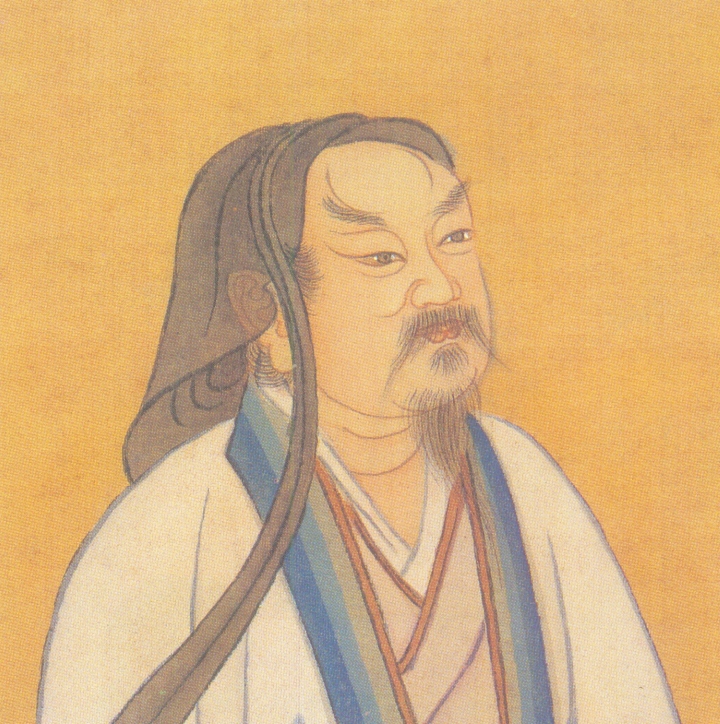
Tao Yuanming, with the name Qian and the character Yuan Liang, also known as Mr. Wu Liu, was posthumously named Jingjie and is known as Mr. Jingjie.
He is an outstanding poet, lyricist, essayist, and also the first pastoral poet in China. He was known as the “ancestor of reclusive poets” and the founder of the pastoral poetry school.
Tao Yuanming has been practicing Confucian classics since childhood, and he loved leisure, doing good deeds, embracing loneliness, and hills and mountains, had strong aspirations, and was unconventional. He possessed both Taoist and Confucian cultivation.
His poetic style was plain and natural, with a lasting sense of emotion and authenticity and profound artistic feelings. The language of his poems is simple, vivid and exquisite. Most of his poetry pursues truth, goodness, and beauty, and is adept at showcasing his own life interests and detached state of mind from the natural world.
| Age | 62 (approximately 365-427 years old) |
| Era | Eastern Jin → Southern and Northern Dynasties |
| Birthplace | unknown |
| Main works | “A Drinking Song”, “The land of Peach Blossom”, “Ah, Homeward Bound I Go!”, and “The Story of Five-willow Gentleman”. |
A Class Work:
Drinking • Verse Five (Chinese-English Parallel Texts)
结庐在人境, 而无车马喧。 问君何能尔? 心远地自偏。 采菊东篱下, 悠然见南山。 山气日夕佳, 飞鸟相与还。 此中有真意, 欲辨已忘言。
In people’s haunt I’ve built my cottage, But I don’t feel disturbed by the hubbub. When asked why I can feel so, A secluded heart makes a secluded place. Picking chrysanthemums beneath the east fence, Carefree I see the south hills. The hill air is pleasant towards evening, And birds fly homeward together. There’s truth in it, I’d like to discern, but words forgotten.
This poem mainly depicts Tao Yuanming’s carefree and complacent attitude after abandoning his official position and returning to the countryside, reflecting his determination to abandon the murky secular fame.
The above poem also reflects his attitude and life experience of returning to nature, indulging in nature, and even stepping into the realm of “complacency and forgetting the external world”.
6. Wang Wei
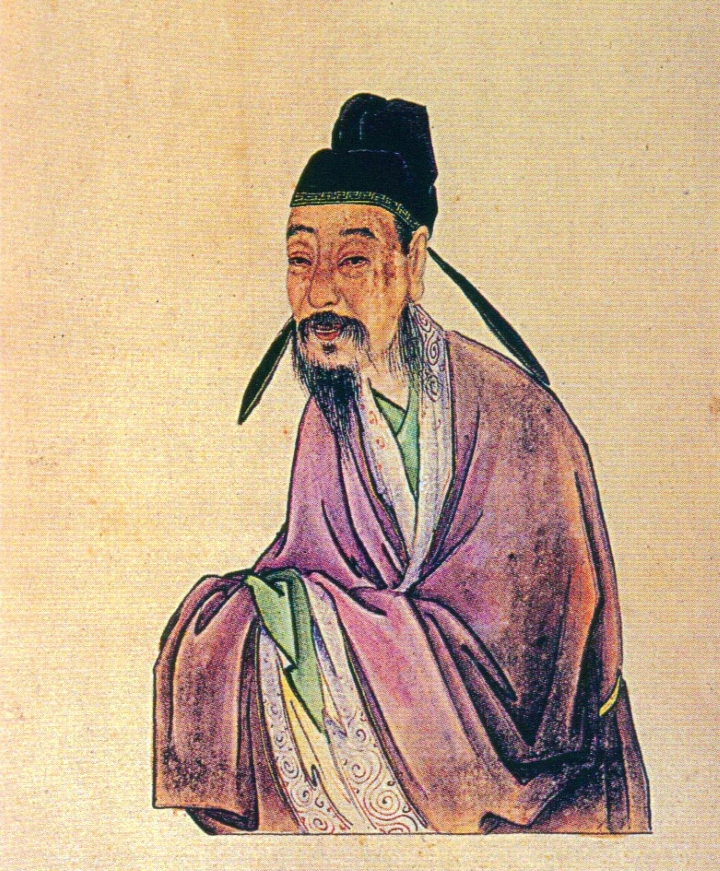
Wang Wei, also known as Mojie, is a poet and painter in Tang Dynasty.
Wang Wei is not only proficient in poetry, calligraphy, painting, and music but also engages in meditation and enlightenment, learning from Zhuangzi. He is known as the “Poetry Buddha”.
Most of his poems depict the landscape and pastoral life, reflecting his leisure through the depiction of natural colors.
His poetic style is fresh and distant, natural and refined, creating an artistic conception of “painting in poetry, poetry in painting”, which has set a banner in the poetry world.
| Age | 61 (701-761 years) |
| Era | Tang Dynasty |
| Birthplace | Puzhou, Hedong Road (now Yongji City, Shanxi Province) |
| Main works | “Wang Youcheng collection”, “Tips for Painting Studies”, “Wangchuan Map”, and “Snow Creek Map”. |
A classic work:
On a Mission Towards the Frontiers (Chinese-English Parallel Texts)
单车欲问边, 属国过居延。 征蓬出汉塞, 归雁入胡天。 大漠孤烟直, 长河落日圆。 萧关逢候骑, 都护在燕然。
A solitary carriage to the frontiers bound, An envoy with no retinue around, A drifting leaf from proud Cathy, With geese back north on a hordish day. A smoke hangs straight on the desert vast, A sun sits round on the endless stream. A horseman bows by a fortress passed: “The general is at the north extreme!”
In the spring of 737 AD (the 25th year of the Kaiyuan era), Cui Xiyi, Deputy Ambassador of Hexi Jiedu, defeated the Tibetan army in Qingdixi.
Emperor Xuanzong of Tang ordered Wang Wei to serve as an envoy to Liangzhou as a censor, to go out to comfort and inspect the military.
Actually, it was to push Wang Wei out of the court. This poem was written during this expedition.
7. Li Shangyin
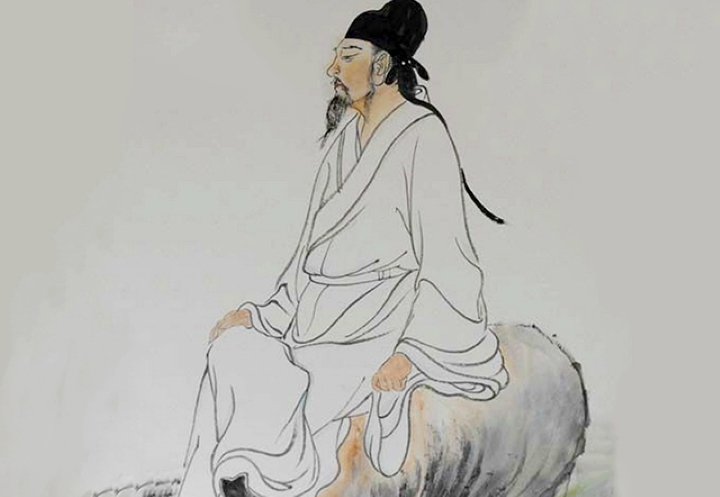
Li Shangyin, also known as Yishan, Yuxisheng, and Fan Nansheng, is collectively referred to as “Xiao Li Du” with Du Mu (an outstanding poet of the Tang Dynasty), and “Wen Li” with Wen Tingyun (a literary figure of the Tang Dynasty). He is one of the most outstanding poets of the late Tang Dynasty.
Li Shangyin’s poetry stood out in the late Tang Dynasty, with many of his works expressing the sad and sorrowful emotions of the late Tang literati, as well as his persistence in love, creating a new style and realm of poetry.
His poetry delivers novel ideas and a magnificent style, especially some love poems and untitled poems written in a touching and sentimental manner, which are passed down by people.
| Age | 45 (approximately 813 to approximately 858 years old) |
| Era | Tang Dynasty |
| Birthplace | Xingyang County, Henan Province (now Xingyang City, Henan Province) |
| Main works | “To One Unnamed”, “The Sad Zither”, and “Gift of lotus flowers” |
A classic work
To One Unnamed·Hard to Meet and So Is to Part (Chinese-English Parallel Texts)
相见时难别亦难, 东风无力百花残。 春蚕到死丝方尽, 蜡炬成灰泪始干。 晓镜但愁云鬓改, 夜吟应觉月光寒。 蓬山此去无多路, 青鸟殷勤为探看。
It' s difficult for us to meet and hard to part; The east wind is too weak to revive flowers dead. Spring silkworm till its death spins silk from lovesick heart, And candles but when burned up have no tears to shed. At dawn I' m grieved to think your mirrored hair turns grey; At night you would feel cold while I croon by moonlight. To the three fairy mountains it' s not a long way. Would the blue bird oft fly to see you on the height!
This poem expresses the psychology of love in a female tone. From beginning to end, there is a combination of pain, disappointment, and lingering, persistent emotions.
Each couplet in the poem reflects this emotional state, but the specific artistic conception of each couplet is different from each other.
8. Li Yu
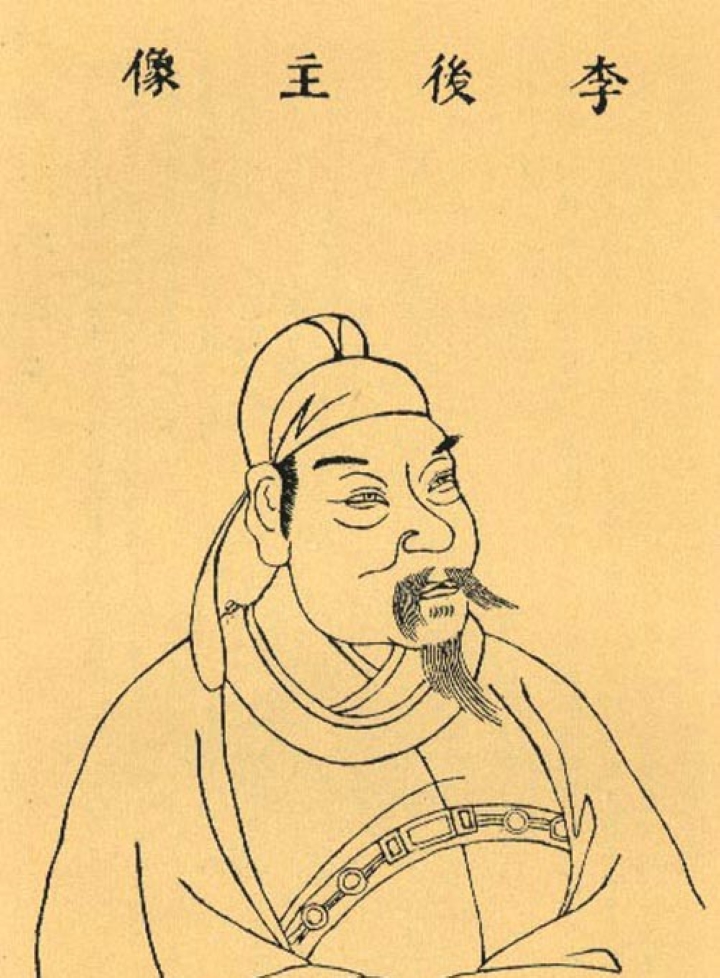
Li Yu, formerly known as Congjia, with the name Chongguang, also known as Zhongyin and Zhongfeng Bailian Jushi, was known as the Later Lord of the Southern Tang Dynasty and the Later Lord of Li. Known as the “Eternal Emperor of Ci”, he was the last monarch and poet of the Southern Tang Dynasty.
Li Yujing is skilled in calligraphy, painting, and music. He is proficient in both poetry and prose, with the highest achievement in Ci.
In the early stages of his poetry, most of his works described the enjoyable life of the court, while in the later stages, he reminisced about his homeland and exclaimed about his background, which presented other realms.
He is adept at expressing typical feelings, thoughts, and experiences in life through specific artistic conception and images, thereby causing emotional resonance with sorrow and hate in different times and places.
| Age | 41 (August 15, 937 to August 13, 978) |
| Era | Five Dynasties and Ten Kingdoms (Southern Tang) → Northern Song Dynasty |
| Birthplace | Shangyuan County, Jiangning Prefecture (now Nanjing City, Jiangsu Province) |
| Main works | “Yumeiren Theme: Wind Returns to Small Garden, Weeds Green”, “Sand-Sieving Waves Theme: Pattering Rain Outside Window” and “To the Tone of Xiangjianhuan·Wordlessly, I climb up the west tower” |
A classic work:
The Lost land Recalled Tune: “The Beautiful Lady Yu” (Chinese-English Parallel Texts)
春花秋月何时了? 往事知多少。 小楼昨夜又东风, 故国不堪回首月明中。 雕栏玉砌应犹在, 只是朱颜改。 问君能有几多愁? 恰似一江春水向东流。
When will there be no more autumn moon and spring flowers For me who had so many memorable hours? My attic which last night in vernal wind did stand, Reminds me cruelly of the lost moonlit land. Carved balustrades and marble steps must still be there. But rosy faces cannot be fair. If you ask me how much my sorrow has increased, Just see the overbrimming river flowing east!
This work is written in the third year of the Taiping Xingguo period of Emperor Taizong of the Northern Song Dynasty (978). At that time, Li Yu had been imprisoned in Bianjing for nearly three years.
This poem is Li Yu’s ultimate masterpiece, depicting the author’s love for his homeland.
9. Bai Juyi
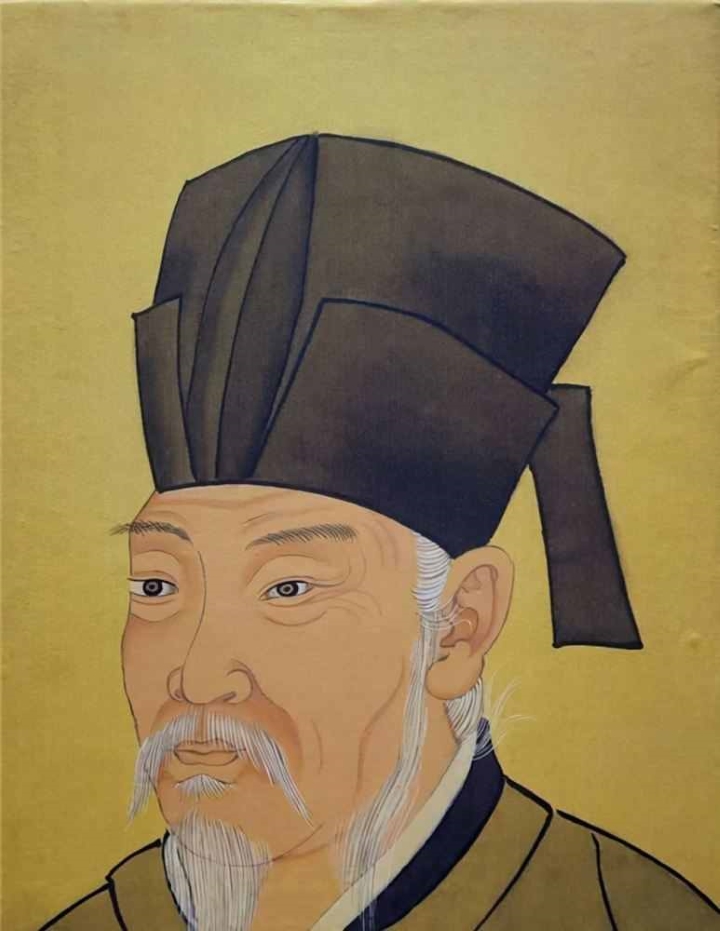
Bai Juyi, also known as Le Tian, is a Buddhist monk in Xiangshan, and he is also known as Mr. Zui Yin. He is a realistic poet of the Tang Dynasty and one of the three great poets of the Tang Dynasty.
His poetry covers a wide range of themes and is full of charm, with over 3000 existing poems.
Bai Juyi’s poetry is colloquial, with plain and simple language, vivid and natural and catchy with a rare use of allusions and ancient words.
| Age | 74 (772-846 years) |
| Era | Tang Dynasty |
| Birthplace | Xinzheng County, Henan Province (now Xinzheng City, Henan Province) |
| Main works | “The Everlasting Regret”, “Song of a Pipa Player”, “The Charcoal-seller” and “On Qiantang Lake in Spring” |
A classic work:
On Qiantang Lake in Spring (Chinese-English Parallel Texts)
孤山寺北贾亭西, 水面初平云脚低。 几处早莺争暖树, 谁家新燕啄春泥。 乱花渐欲迷人眼, 浅草才能没马蹄。 最爱湖东行不足, 绿杨阴里白沙堤。
West of Jia Pavilion and north of Lonely Hill, Lake water levels with the bank and the clouds hanging low. Disputing for sunny branches, early orioles trill; Pecking vernal mud in, newly-returned swallows come and go. A riot of blooms begins to dazzle the eye; Amid short grass the horse hoofs can barely been seen. I love best the east of the lake under the sky; The White Sand Causeway is shaded by willows green.
In the spring of the third year of Changqing, when Bai Juyi was appointed as the envoy of Hangzhou, he visited West Lake and saw the charming scenery from afar, unconsciously feeling the beauty of early spring.
Therefore, he felt relaxed and happy, tapping into his potentials in poetry-writing, so he wrote this famous seven character rhythmic poem.
10. Kou Zhun
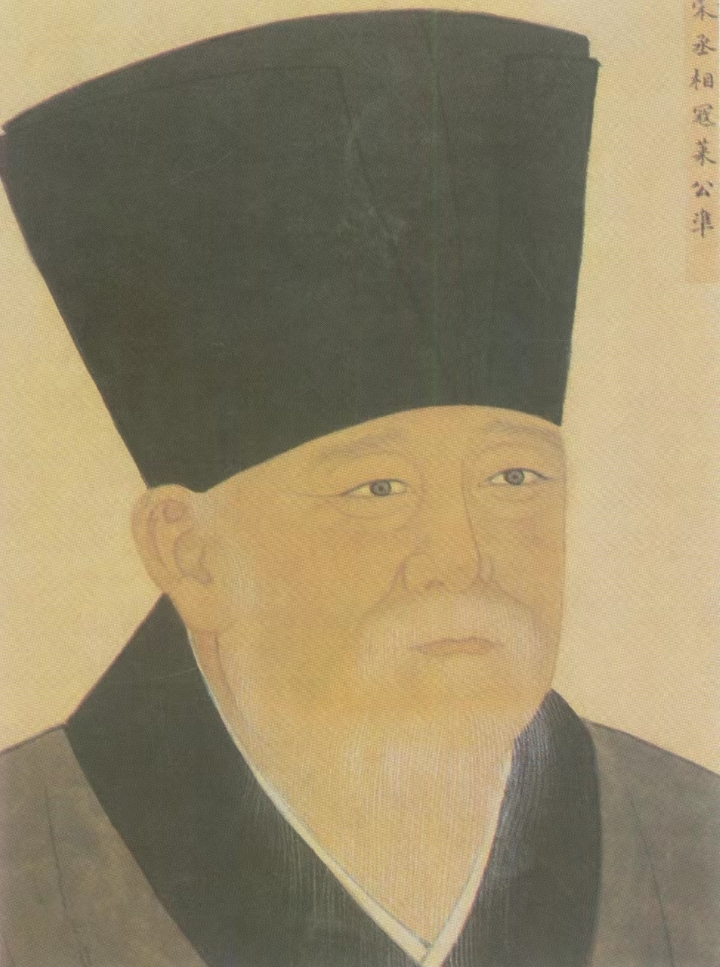
Kou Zhun, also known as Pingzhong and posthumously named “Zhongmin”, is often referred to as Kou Zhongmin or Kou Laigong by later generations.
He was a politician and poet of the Northern Song Dynasty, known alongside Bai Juyi and Zhang Renyuan (prime minister and famous general of the Tang Dynasty) as the “Three Sages of Weinan”.
Kou Zhun’s poetry has beautiful language and is full of musicality. He is good at using vivid metaphors, which gives his poetry and works a strong artistic appeal.
| Age | 61 (August 27, 961 or 962 to October 24, 1023) |
| Era | Northern Song Dynasty |
| Birthplace | Xiagui County, Huazhou (now Weinan City, Shaanxi Province) |
| Main works | “A collection of Koulaigong”and “Collected Poems of Duke Kou Zhongmin”. |
A classic work
Tasuoxing Theme: Late Spring (Chinese-English Parallel Texts)
Chinese Version:
春色将阑,莺声渐老。红英落尽青梅小。画堂人静雨濛濛,屏山半卷馀香袅。 密约沈沈,离情杳杳。菱花尘满慵将照。倚楼无语欲销魂,长空黯淡连芳草。
English Version:
It’s late in springtime. Orioles’ chirping is waning. Red flowers all fell; plums are green and small. In misty rain, person is quiet in painted hall. Screen is half-closed; wisps of aroma remain. Marriage vow was made privately. All is quiet on this love since parted. I’m lazy to look into dust-covered mirror. Speechless and sad, I’m leaning on tower. Gloomy sky is connected to dainty grass.
This is a poet of boudoir repinings. This work uses delicate and expressive, melancholic and sentimental language, starting with the depiction of scenery, where emotions arise. They also use the depiction of scenery to express the loneliness of a homesick woman who misses her friend in a gentle and moving way.
The above are the top ten famous poets in ancient China, who, with their outstanding literary talent and profound life insights, have created numerous immortal poems, pushing ancient Chinese literature to its peak. Their poetry was not only widely praised at that time, but also enduring and passed down through the ages, becoming a treasure in the Chinese culture.
